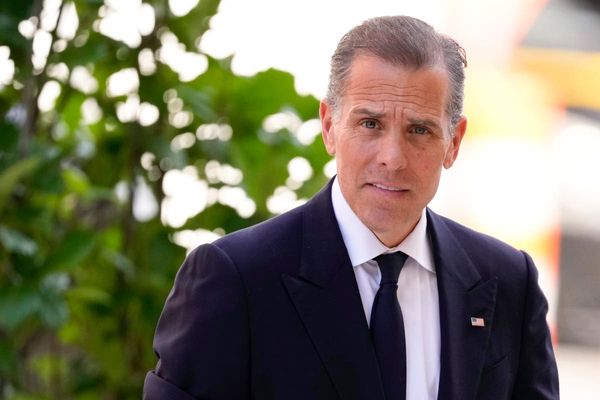
Elizabeth O'Connor's spare and bracing debut novel Whale Fall opens with an isolated Welsh island on a precipice. It is September 1938, and the community's fishermen have begun encountering the Royal Navy out at sea.
When a whale washes ashore, the minister, who shares developments from out-of-date newspapers at mass, suggests that submarine radar could explain its fate. To the elders, the beached whale seems to be an omen, though they're not sure if it portends good or bad. Either way, "it felt as though something was circling us, waiting to land against the shore," O'Connor writes.
We gain entrée to this remote, superstitious world through Manod Llan, Whale Fall's gimlet-eyed, 18-year-old narrator. Her family is one of 12 left on the tiny fictional island, where livelihood revolves around the roiling sea — men like Manod's father, a lobsterman, do the fishing, and women prepare the catch for sale on the mainland. Each year, some men are lost at sea, and some young people move to the mainland for the promise of a better life.
Manod dreams of such a life. She has newly completed her studies at the island's single-room schoolhouse, where she learned English from reading the Bible and distinguished herself as especially bright. But in her culture, as her mother often lamented before her death, "There's no job for a woman to get except wife." Manod's life is even further circumscribed — with her mother gone, she must raise her 12-year-old sister Llinos and tend her father's house. Images from magazines left behind in the chapel fill her daydreams of the kind of life she could lead on the mainland.
When the whale beaches, Manod's options appear to broaden. A pair of English ethnographers from Oxford University soon arrive, eager to see the whale and to document the island's customs. Edward and Joan barely speak Welsh, so they employ Manod as a translator, giving her newfound power through language and stoking her desire to lead a worldlier life. But she struggles with being an object of their anthropological gaze, with their romantic misrepresentations of her culture, and with what it would mean to leave the island — and Llinos — behind. In bringing us to this world through Manod's eyes, Whale Fall provides a stark reckoning with what it means to be seen from the outside, both as a person and as a people, and a singular, penetrating portrait of a young woman torn between individual yearning and communal responsibilities.
In a note on the text, O'Connor writes that she based her fictional island on her research into "an amalgamation of islands around the British Isles," including Bardsey Island off the coast of the Llŷn Peninsula in Wales, where the long-term population in 2019 was just 11. As she told Publishers Weekly, she was also inspired by her "family connection to people who live with the sea and shore," particularly grandparents who were raised in coastal enclaves in Ireland and Wales and moved to English cities during World War II.
From this solid foundation, O'Connor constructs her setting with precise, atmospheric detail that captures a world slowly being eroded. Damp invades everything from the moss-covered chapel to a romance novel whose pages are "shaped in waves." The sea is close enough "to spray the house with water at high tide, and eat away at the paint." Month by month, the whale's body decays on the beach. It invades the women's dreams, where it appears alongside "a woman coming out of the water"; it animates the children's play, as they place flowers around its body and paint pictures of it.
Joan and Edward find the islanders' customs and myths charming, and over their months-long stay, they make phonograph recordings of songs about shipwrecks and tales about the sea jealously stealing daughters and returning them as whales, which Manod translates and O'Connor intersperses between short, impressionistic chapters. For all their efforts to meticulously document, the ethnographers' assumptions about the island and its people cloud their depictions from the start. In her first conversation with Manod, Joan compares the island to Treasure Island, which she presumes Manod has never heard of (Manod has read it). The island fulfills Joan's dream "of a place untouched by cities, where the people were like wildflowers" — a gross simplification of the arduous way of life there.
Through Manod's relationship with Joan, O'Connor grapples with the dark side of idealizing isolation. Manod initially looks up to Joan for her university education and fine clothing — she represents the kind of feminine role model Manod lost when her mother died. She thrills to Joan's attention, and strives to represent herself and the island in the best possible light, lying that she "was named after a kind of coastal herb" and concocting inaccurate tableaus for Joan's photographs. Gradually, though, Manod becomes aware of that Joan's pride in Britain and its Isles — and her conscious refusal to see the island as it truly is — is rooted in fascism. By exploring the looming threats of World War II through the personal, O'Connor concretizes the stakes for the island, avoiding what might otherwise be a plodding rehashing of history.
In the end, Manod is pulled between her feelings of being seen by Edward and Joan and being wholly misunderstood by them, between her yearning to leave the island and her obligations to protect her family, her community, and her culture from exploitation and even extinction. It all makes for a haunting and lucid exploration of the moments leading up to immense change.
Kristen Martin is working on a book on American orphanhood for Bold Type Books. Her writing has also appeared in The New York Times Magazine, The Believer, The Baffler, and elsewhere. She tweets at @kwistent.







